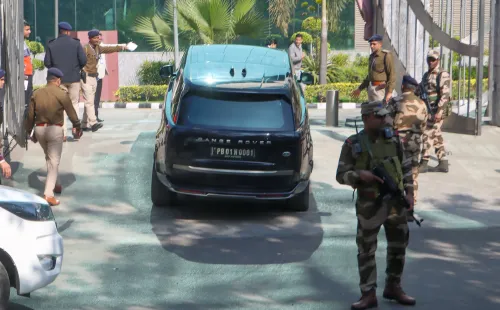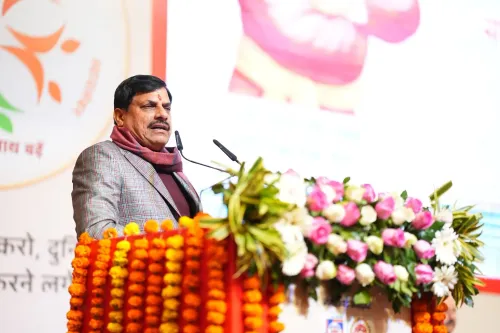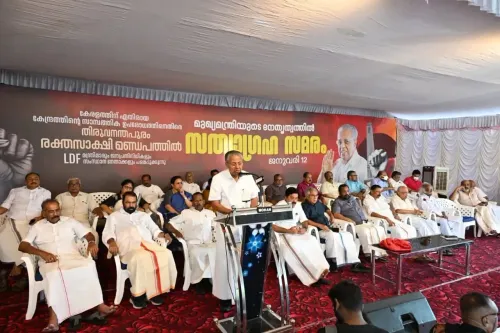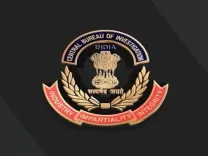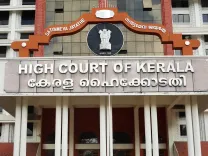Is it Appropriate to Call for a Boycott of the National Census?
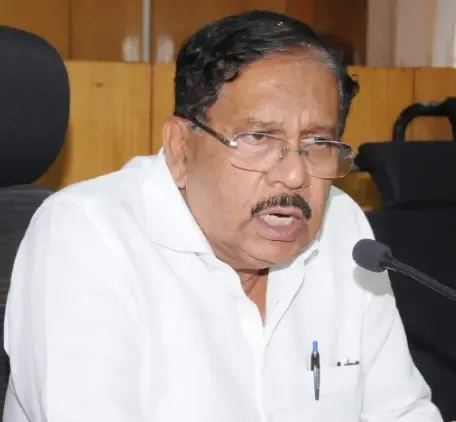
Synopsis
Key Takeaways
- Home Minister G. Parameshwara questions BJP's boycott of the caste census.
- The caste census aims to understand the socio-economic status of communities.
- Deadline for the survey is October 7, with significant progress reported.
- Recruitment delays in government jobs linked to internal reservations.
- BJP claims the caste census is being politicized by the state government.
Bengaluru, Sep 30 (NationPress) In response to the boycott calls from BJP leaders regarding the Socio-Economic and Academic Survey, commonly referred to as the caste census initiated by the Congress-led government in Karnataka, state Home Minister G. Parameshwara posed an intriguing question: What if we asked citizens to abstain from participating in the census organized by the Centre?
During a press briefing in Bengaluru, Parameshwara remarked, “There will inevitably be confusion surrounding the caste census survey. I urge BJP leaders to refrain from exacerbating this confusion. The census is anticipated to be conducted by the Centre, likely in 2026, and has already faced delays. When it is executed, it will serve as a national census, officially documenting the population and examining the conditions of the populace.”
He further questioned, “At that point, are we allowed to tell people not to participate in the census?”
Parameshwara emphasized, “Where is the misuse in this enumeration? It will unveil the challenges faced by communities. We have launched a Socio-Economic and Academic Survey. If we are discouraged from determining the social and economic status of individuals, then what significance does that argument truly hold?”
He clarified that the caste census initiative by the state government is distinctly aimed at studying academic and social conditions.
“Only by understanding the actual status of individuals can we create policies that incorporate them into the mainstream,” he asserted.
When questioned about the deadline, Parameshwara confirmed, “The deadline is set until October 7. For instance, in my district Tumakuru, there are 7.5 lakh households, and within just four days, nearly 2 lakh households have been surveyed. We are on track to meet the target by October 7.”
Discussing recruitment delays, Parameshwara mentioned, “Government job recruitments were postponed due to internal reservations. Consequently, other departments have decided to conduct a one-time recruitment initiative for those who missed opportunities over the past three years. The Police Department, however, will approach it differently, as we need to revise the Cadre and Recruitment Rules.”
He elaborated, “What is the age limit for police constables and sub-inspectors? We have gathered information from other states. In some, the age limit is set at 33 years, while others have it at 27 or 30 years. We are currently in discussions to establish the age limit. Within a week, we will amend the Cadre and Recruitment Rules to offer a permanent solution. The formula proposed by the Chief Minister for other departments will remain applicable for three years. After amending the C and R Rules, the age limit in the Police Department will be permanent,” Parameshwara remarked.
Meanwhile, Karnataka BJP President and MLA B.Y. Vijayendra articulated that the party's state unit does not oppose the caste census but is critical of the “politics surrounding the issue” as played by the Siddaramaiah-led government.
He accused the state government of leveraging the caste census as a political instrument, stating, “The state government is orchestrating a game of chess in the name of the caste census. They are attempting to divide Hindu society. Does the state government even have the jurisdiction for this?”


